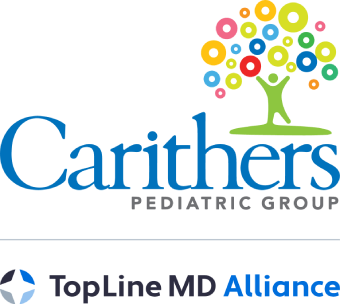While some children have congenital heart conditions, heart diseases like coronary artery disease are typically not something that affects kids. However, there are things your child can start doing now to prevent developing heart disease as an adult. Since February is American Heart Month, now is a great time to teach kids habits for heart disease prevention.
Stay Physically Active
According to the American Heart Association, physical inactivity is one of the most significant risk factors for developing heart disease. Not getting enough physical activity can also lead to conditions that also increase the risk of cardiovascular disease, including obesity, diabetes, and high blood pressure. So, start getting kids in the habit of getting plenty of exercise from the start.
The American Heart Association recommends that children and teens get at least an hour of moderate to vigorous activity every day. Decrease the amount of “sedentary” time (gaming, watching TV, on social media) and increase the amount of active time. Be sure they have plenty of opportunities for activity and exercise. But your kids aren’t the only ones who should get moving. Parents should model healthy behaviors by leading active lifestyles as well.
Eat a Healthy Diet
According to the American Academy of Pediatrics, all children two years old and up should follow a heart-healthy diet. Following this diet through childhood and adolescence can reduce the risk of heart disease in adulthood.
To follow a healthy diet for heart disease prevention, use the following guidelines:
- Limit unhealthy fats like saturated and trans fats
- Include healthy fats (Portion size is still vital with healthy fats, so follow guidelines on serving sizes)
- Olive oil
- Nut oils
- Canola oil
- Nuts and seeds
- Avocados
- Eat low-fat dairy products
- This applies to children over the age of two, but children between the ages of 12 months and two years who have a family history of high cholesterol, cardiovascular disease, or obesity should also have reduced-fat milk.
- Choose whole grains instead of processed grains
- Brown rice
- Oatmeal
- High fiber cereals
- Whole-grain pasta
- 100% whole-wheat or 100% whole-grain bread products
- Quinoa
- Farrow
- Barley
- Eat plenty of fruit and vegetables
- Fresh or frozen fruits & vegetables
- Make sure frozen fruit has no sugar added
- Canned vegetables with low sodium (look for “low-sodium” or “no added salt” on the label)
- Canned fruit packed in water or 100% juice.
- Avoid fruit packed in syrup
- Choose lean protein sources
- Low-fat dairy
- Eggs
- Fish
- Poultry (skinless)
- Soy products
- Legumes
- Beans
- Peas
- Lentils
- Limit salt/sodium
Stay Away from Cigarettes
Smoking cigarettes increases the risks of heart disease and other serious health issues. If your children are young, you are probably not worried about them smoking yet, but they can still be at risk. If someone in your home smokes or your children spend time in places where they are exposed to cigarette smoke, secondhand smoke can harm their health.
According to the CDC, nonsmokers who breathe secondhand smoke at home or work increase their risk of developing heart disease by up to 30%. It also increases the risk of stroke. If someone in your house smokes, then they should talk to their doctor about how to quit. Limit their exposure to smoke in other places like relatives’ houses.
As children get older, it is crucial to educate them on the dangers of smoking continually. Ensure they know the risks associated with smoking and being around other people who smoke. According to the American Lung Association, smoking rates among children and teenagers have gone down in recent years, but that is due to practical and continuous education. So, keep doing your part to ensure your kids know the dangers.
Be Aware of Family History
Knowing family history can be helpful when making a plan for heart disease prevention. Your child’s pediatrician probably asked about any history of cardiovascular disease on either side of the family when they began treating your child. However, as grandparents and other family members age, they may experience issues that weren’t there before. Be sure to update the family history with any new conditions. At Carithers, we screen our patients’ cholesterol at their 10 and 17 year old check ups, catching unknown family history risk.
The team at Carithers Pediatric Group knows how important healthy childhood habits are to future health. February is a great time to educate our patients and families about heart disease. Our patients get comprehensive care that includes an emphasis on preventative care and healthy living. Find more information and help by contacting our offices or checking out our website.



